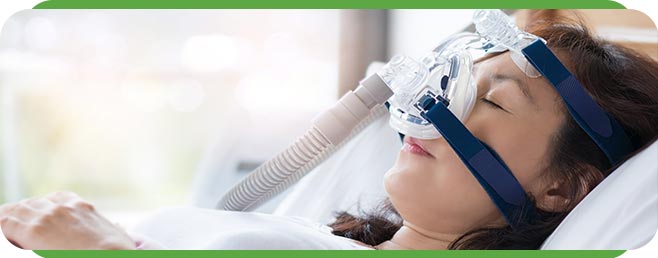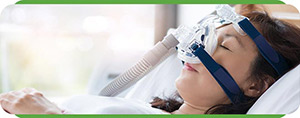What is BiPAP vs CPAP?
If you have more questions about BiPAP or CPAP talk to our team of professionals at Koala® Center For Sleep & TMJ Disorders. We accept new patients. For more information call us today or request an appointment online. We serve patients from all over the USA. Locations in Bloomington IL, Peoria – Dunlap IL, El Paso TX and Wausau WI.


Table of Contents:
What is BiPAP and when is it used?
Who uses a BiPAP?
What are the advantages of BiPAP?
What are the advantages of CPAP?
How does BiPAP and CPAP work?
Bi-level positive airway pressure (BiPAP) is a type of breathing support that delivers higher levels of air pressure to the airways than continuous positive airway pressure (CPAP). BiPAP is a type of respiratory support used in the treatment of breathing disorders, such as sleep apnea. BiPAP is typically administered through a nasal mask and is slowly increased to the prescribed pressure level. BiPAP delivers two different pressures, one for inhale and one for exhale, whereas CPAP only delivers one pressure.
BiPAP (or Bi-Level Positive Airway Pressure) uses a machine to create a higher air pressure in the breathing circuit of the nose and mouth. This increased pressure creates a gentle flow of air through the breathing passages, helping to keep the airway open during sleep. BiPAP (BPAP) machines use a combination of positive pressure and a ventilation system to mimic the effects of breathing in a healthy person. Compared to CPAP, BiPAP machines tend to be more gentle and are also effective at treating a variety of other conditions, such as sleep-maintenance insomnia and chronic obstructive pulmonary disease (COPD).
BiPAP may be recommended for people with:
– An asthma flare-up
– Chronic obstructive pulmonary disease (COPD)
– Congestive heart failure or coronary artery disease
– A neurological or neuromuscular disorder
– Obesity hypoventilation syndrome
– Poor breathing after a medical procedure
– Poor breathing because of another medical condition
BiPAP provides many benefits, including:
– Patients have good compliance rates
– Effective improvement in blood gas levels
– Monitors airflow in response to individual needs
– Can treat patients with central sleep apnea
– Suitable for patients with COPD
CPAP has many benefits, such as:
– Improves Cardiovascular Health — Sleeping disorders often contribute to the development of other underlying issues such as heart disease, hypertension (high blood pressure), and stroke. CPAP therapy has been proven to improve cardiovascular health, which can promote longevity.
– Better Diabetic Control — Sleep apnea is associated with type 2 diabetes, and CPAP can help; by reducing insulin resistance, CPAP therapy can help in controlling diabetes, which can lead to more stable blood glucose levels.
– Improves Sleep Quality of the Patient and Their Partner — We are all familiar with the raucousness of snoring and how it can disturb our sleep, and CPAP therapy can help reduce or even prevent snoring altogether.
BiPAP and continuous positive airway pressure (CPAP) are both forms of therapy used to treat sleep apnea. BiPAP is a machine-generated therapy whereby a machine blows air into the patient’s nose and throat to provide continuous positive airway pressure. This improves the chances of the user breathing throughout the night, even if he or she is not actually sleeping. On the other hand, CPAP uses a mask equipped with a hose that is connected to a machine that continually blows air into the user’s airway to provide the same level of positive airway pressure.
If your CPAP or Bi-PAP therapy is not as effective as desired, come to Koala® Center For Sleep & TMJ Disorders to discover an alternative. Our team is experienced at treating sleep apnea with Oral Appliance Therapy and can provide you with a non-surgical, non-pharmaceutical and non-electricity requiring option. Call us today to book an appointment with our sleep specialist.

Additional Services You May Need
▸ KoalaKIDZzz®
▸ Sleep Apnea
▸ Snoring
▸ TMJ Disorder
▸ Fatigue
▸ Sleep Disorders
▸ Weight Loss
▸ CPAP Alternative
▸ Oral Appliances




